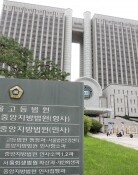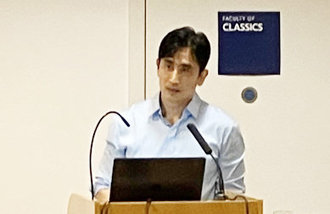[Editorial] Uri Party Economics
Consistency is key to successful economic policies. Without a doubt, inconsistent policies add more confusion and instability to markets. However, if the government remains consistent in pushing policies that proved a failure, the nations economy would suffer all together. Worse yet, policies are bound to fail if they overly control and strangle markets, and the public will bear the brunt as a consequence. Thus, the principle of consistency applies to reasonable market-oriented policies only.
This is what we South Koreans are well aware of through our first-hand experiences over the past three years, and what we know from the plight of North Koreans over the last 50.
A day before yesterday, ruling Uri Party lawmaker Jeong Deok-goo stressed the need for overhaul of economic strategies, saying that the partys attempt to make anti-market policies look like reform strategies backfired in the May 31 local elections. He said that the government and the Uri Party, which are supposed to induce investment from large corporations for job creation, stuck to tight rules and regulations, such as fixing a ceiling on total equity investment.
The misguided policies resulted in low growth and declining growth potential. The governments real estate policies pushed forward to placate public discontent stemmed from wealth disparity and the sense of relative deprivation, only to send housing prices and the tax burden soaring. The so-called balanced national development ended up fueling real estate speculation.
Those hit hardest by the adverse effects of the ill-advised policies were the jobless and the underprivileged.
Despite the overwhelming defeat in the local elections, however, some ministers and ruling Uri Party lawmakers even insist on their counterproductive anti-market approaches. This means that they will not change a bit in seeking unsuccessful policies that have brought widespread poverty, prolonged recession, growing youth unemployment, and skyrocketing real estate prices. Deputy Prime Minister for Finance and Economy Han Duck-soo, and Construction and Transportation Minister Choo Byung-jik mentioned that they will steadfastly move forward with economic policies, including one for real estate markets. Uri lawmaker Lim Jong-in even said that those who call for a tax cut and a business-friendly environment are supporters of the opposition Grand National Party.
Uris right response to its failure at the ballot box would be truly new policies to win back disheartened voters. However, the government and ruling party failed to read the voters minds. What voters see in this are their incompetence and irresponsibility. I sincerely appeal for the government to lay out noble economic management plans based on the market principle for the latter half of this year. Only in that way can the government save itself, as well as the national economy, and peoples livelihoods now in crisis.







